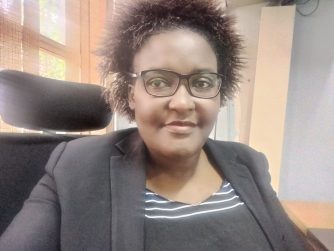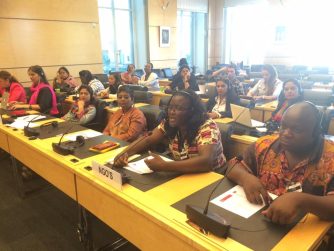Kenya has witnessed a phenomenon growth of universities, with more than 60 public and private universities currently. This growth should be inclusive to allow all Kenyans, including people living with disability, to enjoy the services.
Disability is still largely a hushed subject. Some communities still associate disability with a bad omen, stigmatizing it to the extent of isolating and discriminating against those with disability.
By having a compulsory module on disability inclusion for all students joining the institutions, universities will help them appreciate the diversity brought about by disability.
As a gray subject, disability should be an area of research and study in universities. But how many masters or PhD theses have universities churned out on this issue? As matter of fact, how many universities offer disability studies?
Some only focus on Special Needs Education. Whereas SNE is relevant, in other jurisdictions disability studies are now more pronounced in line with global disability rights development.
Most graduates have no idea what to do when they encounter the disabled. Stories abound of doctors and nurses who have ignored patients with disability because of
lack of skills on how to effectively communicate with them or outright negative attitude towards the disabled!
Women living with disability have been humiliated in health facilities with questions such as, ‘who made you pregnant?’ This not only depicts a negative attitude on the health providers’ part, but it is an affront to the sexual and reproductive rights of women with disability. In some health facilities maternity and delivery beds are not suitable to the needs of women with disability, yet planning is done by university graduates.
Accessibility to buildings remains a huge challenge to persons with disability, yet universities continue to train architects and engineers, graduates with little or no idea about inclusive and enabling environment and products for all.
Other than UoN, how many universities are teaching and developing sign language for the deaf? How many IT graduates have had an orientation on disability and can produce inclusive and accessible ICT products? How many lecturers take cognisance of the presence of students with special needs in their classrooms? How many universities have information in accessible formats to support students or lecturers with communication difficulties or interpreters for deaf students?

Disability does not make one less of a scholar and universities must endeavour to harness talents and potential in disabled persons.
The Commission on University Education should include disability access and inclusion as part of its criteria for appraising universities.
University managements must equally expand infrastructure and facilities to support the disability cause. The PS for Higher Education should ensure university councils include not only qualified, but passionate people with disability who can frankly hold brief for disability inclusion.





